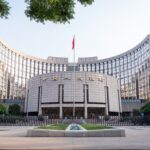In a surprising turn of events, UBS Group AG finds itself on the precipice of incurring penalties amounting to hundreds of millions of dollars due to the alleged mismanagement of Archegos Capital by Credit Suisse. Following thorough investigations conducted by regulators in the UK, Switzerland, and the US, the financial giant is now awaiting the official announcement of penalties slated for the end of July.
UBS, following the completion of its emergency takeover of beleaguered rival Credit Suisse last week, is bracing for the fallout of the investigations. The merger has led to the creation of a Swiss banking and wealth management behemoth boasting a balance sheet of US$1.6 trillion.
The issue at the center of these penalties is Archegos’ collapse, which is largely attributed to the founder, Hwang’s aggressive utilization of total return swaps. This type of financial contract was leveraged to amplify the size of his market positions substantially. Unfortunately, this gamble did not pay off, and the collapse of the New York-based firm caused losses in the billions for Credit Suisse.
Also Read: A Game-Changing Acquisition: UBS Acquires Credit Suisse, Creating a Swiss Banking Titan
Britain’s Prudential Regulation Authority is said to be considering a fine of up to £100 million, while the US Federal Reserve may impose a penalty of up to US$300 million. Interestingly, Credit Suisse had only set aside US$35 million for potential fines. Meanwhile, the Swiss Financial Market Supervisory Authority, whose President Marlene Amstad clarified in May that they do not have the authority to fine financial institutions, has yet to release their findings.
In anticipation of potential lawsuits regarding the Credit Suisse deal, UBS had already allocated US$4 billion in May. While UBS, the Swiss Financial Market Supervisory Authority, and the Prudential Regulatory Authority have yet to respond to requests for comments, the US Fed Reserve declined to comment on the matter.
As the financial world watches with bated breath, UBS’s upcoming penalties could serve as a stark reminder for financial institutions about the risks of aggressive financial strategies and the potential for far-reaching consequences.
This news article is based on reports from the Malay Mail website.
















